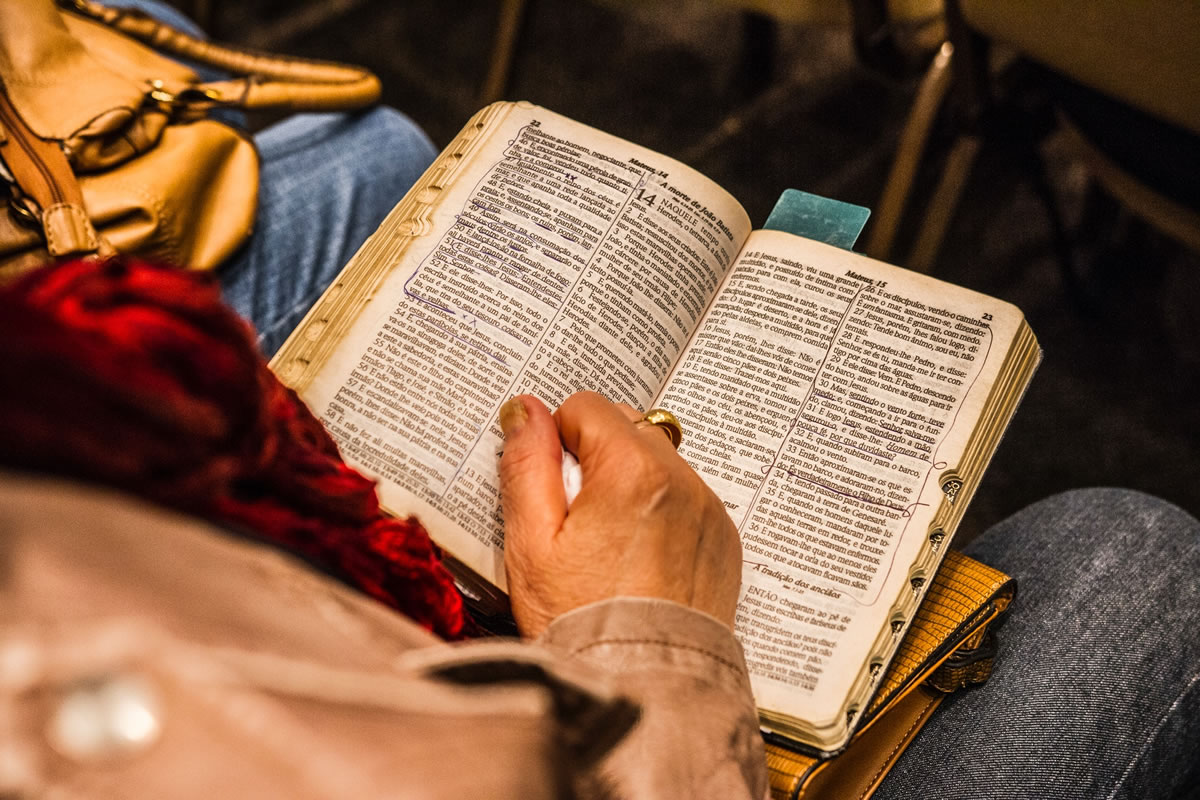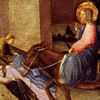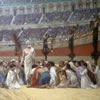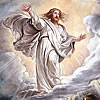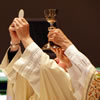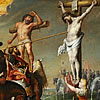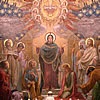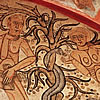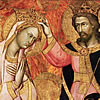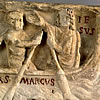What to do on Sundays to Keep the Lord's Day if your bishop dispensed your diocese from the Sunday obligation
We are in the center of an unprecedented event in recent history – the halting of public masses, and a dispensation from the Sunday obligation. Many of us who regularly attend Sunday mass are at a quandary of what to do. This article will make some suggestions based on the Catechism where it teaches us that, “If because of lack of a sacred minister or for other grave cause participation in the celebration of the Eucharist is impossible, it is especially recommended that the faithful take part in the Liturgy of the Word if it is celebrated in the parish church or in another sacred place according to the prescriptions of the diocesan bishop, or engage in prayer for an appropriate amount of time personally or in a family or, as occasion offers, in groups of families.” CCC § 2183
Read Scripture
In places where masses are cancelled, it would also mean a gathering for the Liturgy of the Word is also proscribed. In place of that, gather the family at home (or do it alone) and read the readings for the day. That is the 1st Reading, the responsorial Psalm, the 2nd Reading, and the Gospel. You can get the list of readings at http://www.usccb.org/bible/readings/031320.cfm
Read them slowly and prayerfully. Remember that it is the word of God, and that means he is speaking to us. Let’s listen to him.
Meditate on the Readings
At mass, the priest will usually guide our thoughts on how to live the Gospel. Since the priest is not around to do this, we can do this on our own using meditation, also known by its other name mental prayer.
Christian meditation is different from Eastern meditation whose aim is tranquility. In Christian meditation, our mind is on a quest to find out what God is trying to tell us. (CCC § 2705) We think about what we have read and ask ourselves, “Lord, what do you want me to do?” (CCC § 2706.)
In his book, The Better Part: A Christ-Centered Resource for Personal Prayer, Father Bartunek suggests four steps. Concentrate, Consider, Converse, and Commit.
In Concentrate, we put ourselves in the presence of God and focus on him. Since God is the originator of all prayer, there must be something he wants to tell us. By concentrating on him, we put ourselves in the disposition to listen. So a quiet area is best. Distractions like television, mobile phones, etc, are best kept away. A short opening prayer can put us in this disposition. A good prayer can be, “My Lord and my God, I firmly believe that you are here; that you see me, that you hear me. I adore you with profound reverence; I beg your pardon for my sins, and the grace to make this time of prayer fruitful. My Immaculate Mother, Saint Joseph my father and lord, my guardian angel, intercede for me.”
In Consider, use your mind to roam around what you have read in Scripture. Place yourself in the scene. How are people saying things? What is their motivation in saying those things? Does it remind you of something in the Old Testament? Would the culture of that time have any bearing on the scene? What do you think the human author’s purpose is in writing the particular verses? Explore the scene.
In Converse, you can stop your Consider process for a moment if you find something odd, funny, interesting, heartwarming, or confusing. Speak with Christ and tell him what you are thinking or feeling. If the verses fill you with remorse, ask for forgiveness. If the verses fill you with gratitude, give thanksgiving. But always try to discern what it is God is asking you to do. You can go back and forth between Considering and Conversing. At a certain point, we have to end, (after 15 to 30 minutes) and we go to the part where we Commit.
When we Commit, we focus on one or two things that touched us the most. It could be an inspiration to do something, a resolution to stop something, or an intense affection. Resolve to do these things and ask for grace. It would be good to end with a short prayer also. A good one is, “I thank you, my God, for the good resolutions, affections and inspirations that you have communicated to me in this meditation. I beg your help in performing them. My Immaculate Mother, Saint Joseph my father and lord, my guardian angel, intercede for me.”
Receive Christ in Spiritual Communion
The mass has two parts: the Liturgy of the Word, and the Liturgy of the Eucharist. In the first part, we receive the “word of God” in Scripture, and in the second part, we receive the “Word of God” – Jesus – in Holy Communion. The reason why it is in this sequence is that after we hear God’s word, we respond by the craving to receive him in the Blessed Sacrament. Since we don’t have access to the Eucharist, we can receive Christ in what is called Spiritual Communion. We tell our Lord we desire to receive him, even if it is in a non-physical way for now. We can say, “I wish my Lord to receive you, with the purity, humility and devotion with which your Most Holy Mother received you, with the spirit and fervor of the saints.”
In Conclusion
Just because we are dispensed from the Sunday obligation, it doesn’t mean we should not remember the Lord’s Day. We are dispensed, yes, but we must still keep the Third Commandment. By doing these activities, we can physically “Remember the Lord’s Day” even if we cannot go to mass.
Photo by Eduardo Braga from Pexels
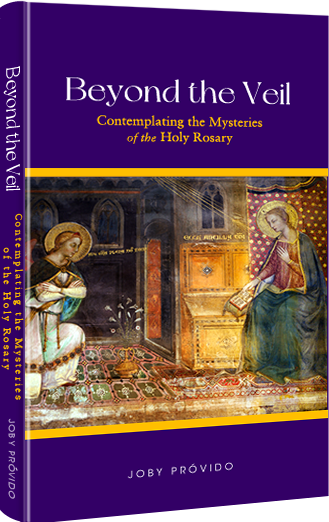
Beyond the Veil
Contemplating the Mysteries of the Holy Rosary
Prayer giants like Pope St. John Paul II, Pope Paul VI, Bl. Archbishop Fulton Sheen, and Bishop Robert Baron advocate that we contemplate on the mysteries of the rosary while we say the vocal prayers. Unfortunately, there are not many books that teach us how to do this. Beyond the Veil comes to the rescue by suggesting seven ways we can pray the rosary the way it was intended.
The larger part of the book offers mental images for each of the mysteries we can use in our contemplation, for how can we imagine the scenes in the rosary if we don't know about them?
Get your copy now either in Hardbound, Paperback, or Kindle

A Sky Full of Stars
Know Our Lady through her Titles in the Litany
The Church helps us understand who Mary is by honoring her with different titles in the Litany of the Blessed Virgin Mary. Unfortunately, over time and difference of culture, we might not grasp what it is the Church is ascribing to her and lose that opportinity to get to know her.
In A Sky Full of Stars, each title of the Litany is explained so we get know Mary more and fall in love with her all over again.
Get your copy now either in Hardbound, Paperback, or Kindle
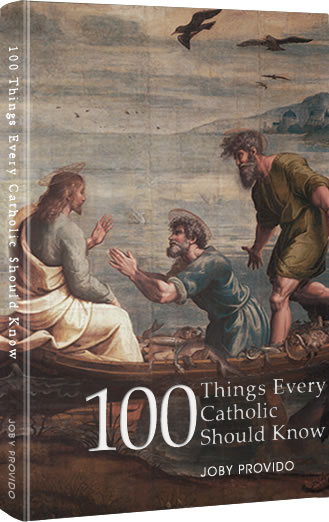
100 Things Every Catholic Should Know
Whether or not you are new to the Catholic Church, or struggling, or lapsed, or dynamically involved, this book will enlighten you with the essentials of the Faith that have been handed down to us by the apostles.
Each of the 100 topics is easy to read and distilled into bite-sized portions. Through cross-referencing, the book also shows how the topics are interrelated. Those who are new to the Faith will find this book an edifying handy reference, and those who have simply forgotten will find it a great review material that might spark a new love for God and religion.
Get your copy now either in Hardbound, Paperback, or Kindle
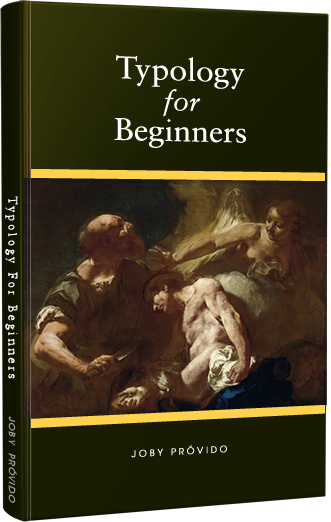
Typology for Beginners
A Catholic Perspective on understanding the New Testament through the Old Testament
First-century Jews converted to Christianity in droves because of the way the New Testament was written to show Jesus was the Messiah promised by the Old Testament. We also learn about how Mary is the New Eve and the Ark of the Covenant in the way the writers portray her.
Through typology, the patterns that connect the Old and New Testaments make the Bible stories more accessible so that one becomes excited to read Sacred Scripture again.
Get your copy now either in Hardbound, Paperback, or Kindle


